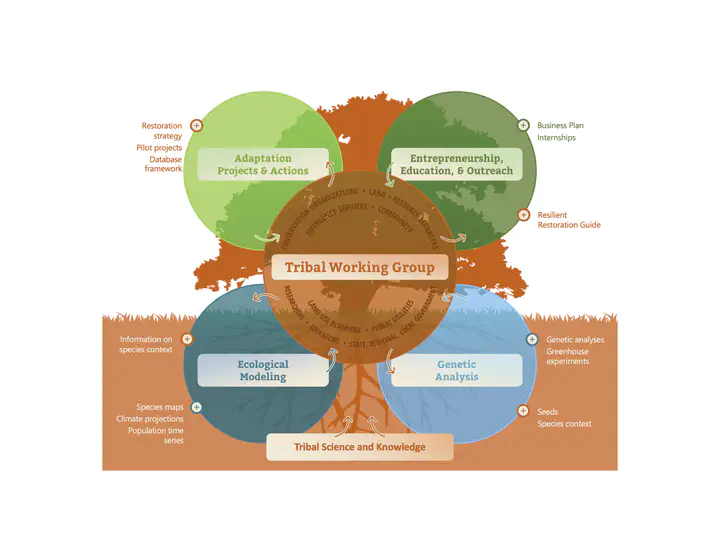Resilient Restoration: Advancing Ecological, Cultural and Community Resilience with Tribal Communities in Southern California

The goal of the project is to preserve plant species and ecosystems that enable the continuation of native tribal cultural practices. Currently, some of these species are facing threats including hotter temperatures, prolonged drought and increasing urbanization. “Many plants that are integral to tribal tradition and spirituality are also key for maintaining biodiversity in this region,” said Helen Regan, a professor in UC Riverside’s Evolution, Ecology, and Organismal Biology Department, and co-principal investigator of the project. “Everyone benefits from ensuring the survival of these species.” Regan and co-principal investigator Janet Franklin, are working closely on the project with a number of collaborators including ecologists from San Diego State University and the Climate Science Alliance, an organization that brings people together to collaborate on regional climate resilience projects. Members of more than 20 Southern California nations comprise the Tribal Working Group, who are advising and guiding the researchers about the restoration that’s needed on their lands. One key study subject includes the oak tree, since acorns once formed a significant dietary staple for area tribes. Dried, powdered and made into porridge, acorns offered an important source of protein and good fats during winter months when game was scarce. But they have nearly disappeared from native diets. “We have been resilient through a long history of colonization, but we have also lost a lot of knowledge about our life ways and our food was especially impacted,” said William Madrigal Jr., a Cahuilla and Luiseno California Indian, and adjunct Native language professor at UCR.
Madrigal Jr. is the Tribal Partnerships/Capacity program manager for the Climate Science Alliance, and a member of the Cahuilla Band of Indians tribe. “Going back to our acorns and teaching our ways to the next generation will enable us to continue and strengthen our traditions,” he said.
See more at the funder’s website